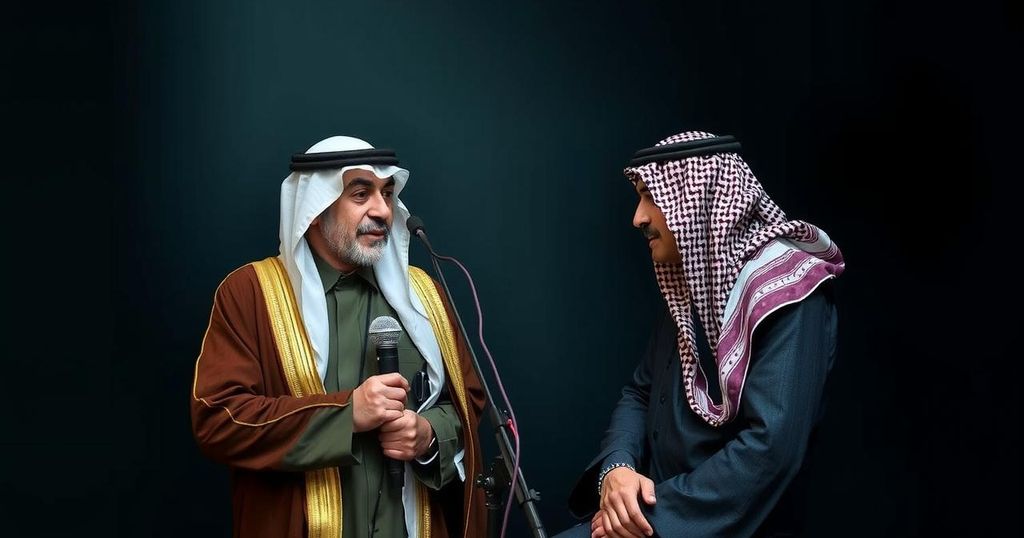Dr. Einat Wilf Critiques Qatar’s Support for Hamas in Conflict with Israel
Dr. Einat Wilf, in an interview with The Jerusalem Post, critiques Qatar’s involvement in the Israeli-Palestinian conflict, asserting that it effectively supports Hamas and undermines Israel. She calls for a stronger Israeli stance against Qatar, especially regarding the hostage crisis, urging a reevaluation of Qatar’s role as a mediator and recognizing it as a significant adversary. Her insights highlight the need for a strategic shift to ensure regional stability and safety for citizens.
In a recent interview with The Jerusalem Post, Dr. Einat Wilf, an Israeli political scientist and former member of Knesset, expressed strong criticism of Qatar’s role in the ongoing Israeli-Palestinian conflict. She argues that Qatar’s support for Hamas not only undermines Israel but also poses a critical threat to regional stability. Wilf asserts that contrary to the perception of Qatar as a neutral mediator, it actively collaborates with Hamas, providing the group with financial, material, and moral support necessary for its military operations. Dr. Wilf emphasized that despite the destruction of Hamas infrastructure and loss of personnel, the group has not suffered significant repercussions for its October 7th attack on Israel, primarily due to Qatar’s support. As long as Hamas retains power in Gaza, she contends, Israel cannot claim any significant achievements. Furthermore, Wilf articulated concerns regarding Qatar’s media influence, particularly through its state-owned outlet, Al Jazeera, which she believes contributes to anti-Israel sentiment and further emboldens Hamas. She argues that international media disproportionately cites Al Jazeera, inadvertently amplifying Qatar’s narrative and undermining Israel’s political standing. When addressing the sensitive issue of hostages, Dr. Wilf strongly criticized the normalization of negotiations with Qatar for their release. She argued that Qatar is complicit in these kidnappings and that Israel should view it as an adversary rather than a mediator. Wilf lamented Israel’s failure to confront Qatar more aggressively and to leverage international public opinion in its favor. She further highlighted past mistakes, indicating that Israel had allowed Qatar to establish itself as an intermediary while simultaneously empowering Hamas. Wilf proposed that Israel should mobilize public support to hold Qatar accountable for its actions and orchestrate pressure campaigns that capitalize on Qatar’s priority for its international image. In conclusion, Dr. Wilf calls for a re-evaluation of the Israeli approach to Qatar while stressing the necessity of recognizing it as a significant threat that enables Hamas. Her analysis underscores the urgency of taking a firmer stance against Qatar to ensure the safety of hostages and ultimately bring an end to the cycle of violence and instability in the region. Qatar’s role in supporting Hamas is not merely as a facilitator but as an integral actor exacerbating the conflict. Wilf’s insights challenge the prevailing assumption of Qatar’s neutrality and highlight the complexities of geopolitical dynamics in the Middle East.
This interview delves into the contentious dynamics between Qatar, Hamas, and Israel, particularly in light of recent events that have escalated tensions in the region. Dr. Einat Wilf, as both a scholar and former Knesset member, brings an authoritative perspective on the implications of Qatar’s actions and the broader impact on the Israeli-Palestinian conflict. Her commentary reflects a critical view on the influence of external actors in local conflicts and advocates for a reevaluation of diplomatic strategies in dealing with perceived adversaries.
The analysis provided by Dr. Wilf serves as a compelling call to action for Israel to reassess its diplomatic relationships, particularly regarding Qatar’s involvement in the ongoing conflict. By recognizing Qatar’s influence as detrimental rather than supportive, she encourages a strategic shift toward a more confrontational stance that prioritizes national security and the resolution of the hostage situation. Ultimately, Dr. Wilf’s insights contribute to a deeper understanding of the complexities involved in the Israeli-Palestinian conflict and the necessary steps Israel must take to navigate this challenging landscape.
Original Source: m.jpost.com




Post Comment